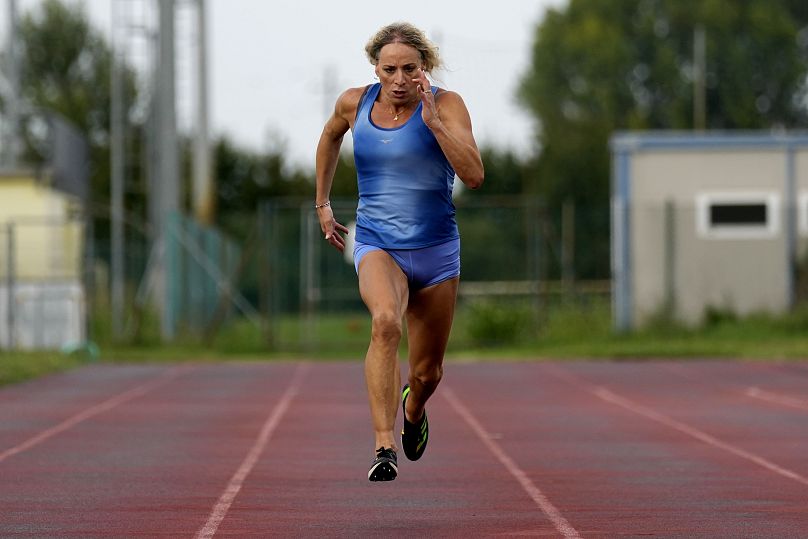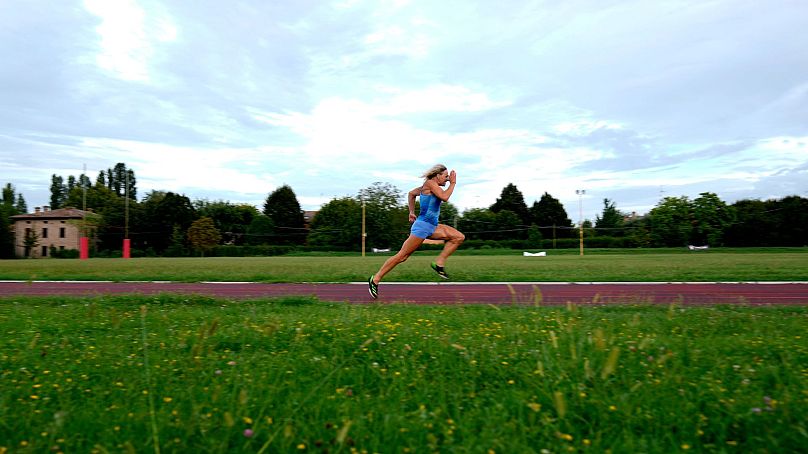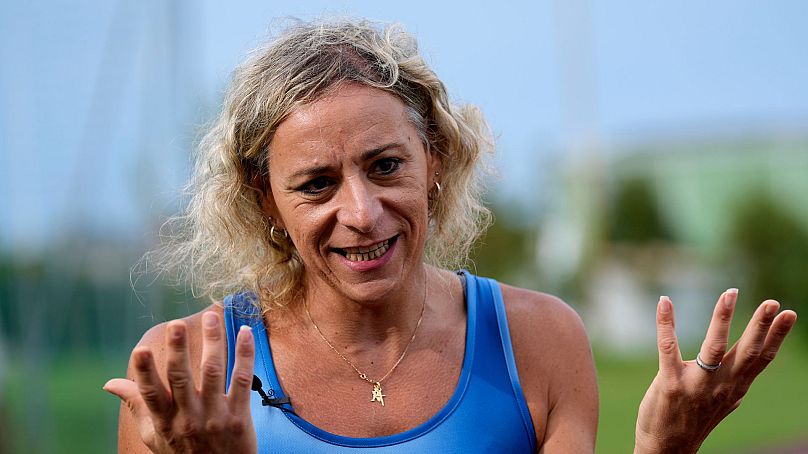Despite facing controversy and claims of unfair advantage, Petrillo is set to compete in the T12 classification for visually impaired athletes in Paris.
Valentina Petrillo fell in love with athletics as a seven-year-old while watching Italian sprinter Pietro Mennea win gold in the 200 metres at the 1980 Moscow Olympics.
“I said I wanted to be like him,” said Petrillo, who was assigned as male at birth. “I wanted to put on the blue (Italy) shirt, I wanted to go to the Olympics. But I wanted to do it as a woman because I didn’t feel like a man, I didn’t feel like myself.”
Four decades later, at 50, Petrillo is about to finally realise her dream, but not at the Olympics.
She is set to become the first transgender woman to compete at the Paralympics when she runs the 200 and 400 meters in the T12 classification for visually impaired athletes in Paris.
Petrillo's journey to the Paralympics
Petrillo, who was diagnosed as a teenager with Stargardt disease, a degenerative eye condition, considers herself lucky despite the challenges she’s faced.
She’s lived most of her life as a man and only came out as transgender to her wife - with whom she has a son - in 2017 before beginning hormone therapy two years later.
“In January 2019 I started the transition process and in 2020 I achieved my dream, which was to compete in the women's category to play the sport that I have always loved,” she said in an interview at a track she trains on in a suburb of Bologna, where she lives.
She ran her first race as a female in 2020 and went on to finish fifth in the European Para Athletics Championships. She won bronze in the 200 and 400 meters at last year’s World Para Athletics Championships.
Transgender regulations in athletics and backlash
World Athletics last year banned transgender women from competing in the female category at international events if they transitioned after puberty. But its para counterpart, World Para Athletics, has not followed suit.
In a statement to AP, the WPA said transgender athletes in its women’s competitions are required to declare their gender identity for sporting purposes is female and provide evidence that their testosterone levels have been below 10 nanomoles per litre of blood for at least 12 months prior to their first competition.
Testosterone is a natural hormone that increases the mass and strength of bone and muscle after puberty. The normal adult male range rises to up to about 30 nmol per liter of blood compared with less than 2 nmol/L for women.
“Any future changes to WPA’s rules position in this area will only be considered following appropriate consultation with teams and athletes and taking into consideration the rights and best interests of all those involved,” it said.
In a sport already grappling with how to create a level playing field among athletes with different levels of impairment, some of Petrillo’s competitors say she has an unfair advantage.
There was a backlash against Petrillo in Spain last year after she narrowly beat Spanish athlete Melani Berges to fourth place in the semifinal of the world championships, meaning that Berges didn’t qualify for the final and so missed out on the chance of making it to the Paralympics.
Berges called it an “injustice,” telling Spanish sports site Relevo that while she “accepts and respects” transgender people, “we are no longer talking about daily life, we are talking about sport, which requires strength, a physique.”
The Spanish Paralympic Committee told AP that its stance had not changed since last year, when a spokesperson told Spanish media that “we respect the regulations of World Para Athletics, which currently allow trans women to compete, as is the case with Valentina Petrillo, but, looking to the future, we believe that it would be appropriate to move towards uniformity of criteria with the Olympic world in relation to this matter.”
Petrillo said she understands to some extent those who question whether she should be competing in the female category.
Petrillo referred to a study funded by the IOC — and published in April in the British Journal of Sports Medicine — showing that transgender women were actually at a physical disadvantage compared to cisgender women across several areas, including lung function and lower body strength.
Championing change: Petrillo’s advocacy for transgender rights
At the Paralympics, the finals of the women’s T12 400m and 200m will take place on 3 September and 7 September respectively, with the heats the previous day.
Petrillo will be cheered on by her ex-wife and nine-year-old son as well as her brother.
However, she says that she has already won her biggest challenge, no matter what happens when she takes to the track in the Stade de France.
“Unfortunately, we still live in a situation where transgender people are marginalised, who will never be able to change a document like I did, who will never be able to get what they deserve, the respect they deserve,” Petrillo said. “And therefore, my thoughts go to them, to those who have been less fortunate than me.”
"From now on I’d like to hear beautiful stories of transgender people, of people with disabilities, everybody. And my hope is that from my story they can find the inspiration and the strength to believe a different tomorrow is possible.”














